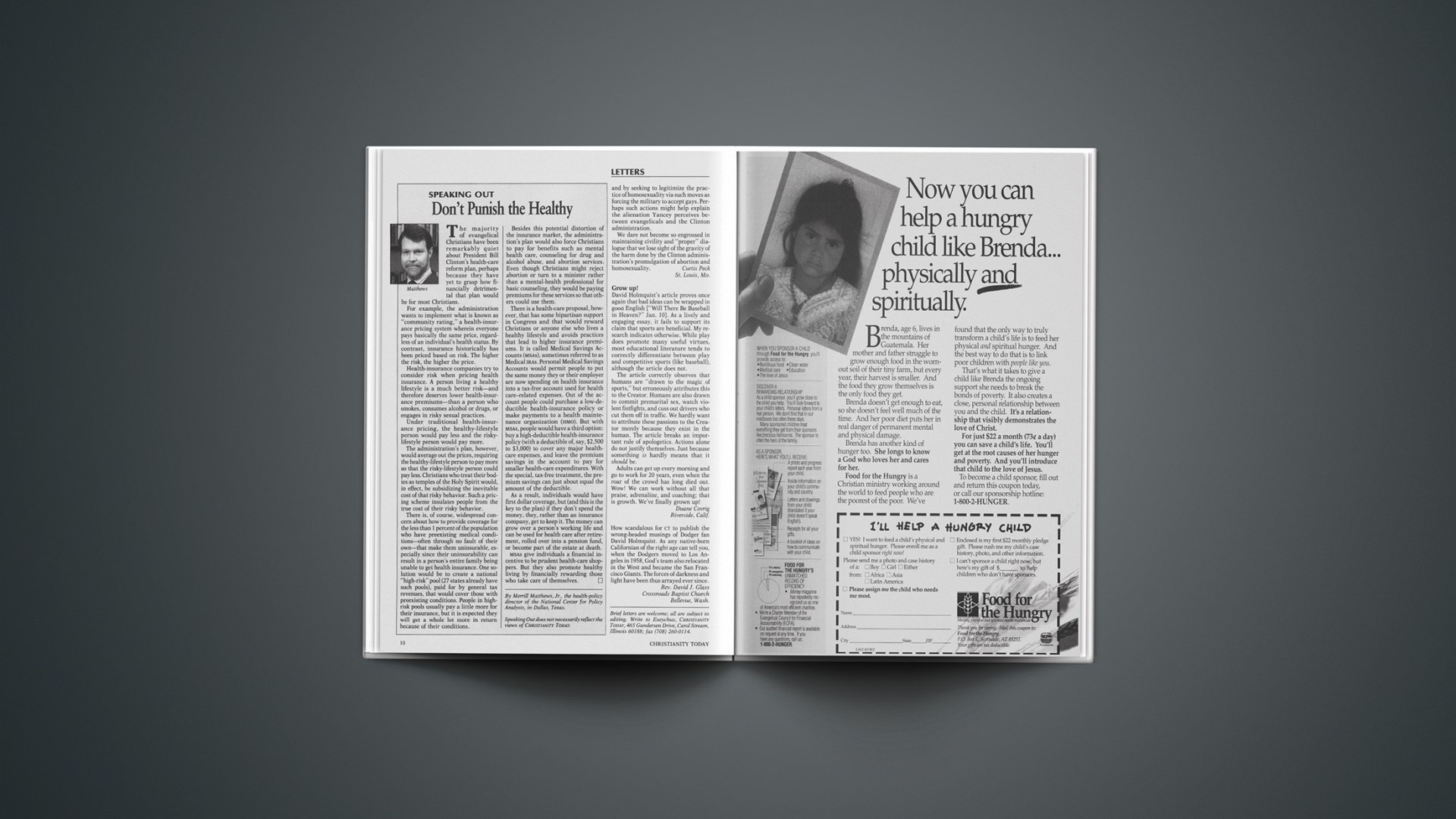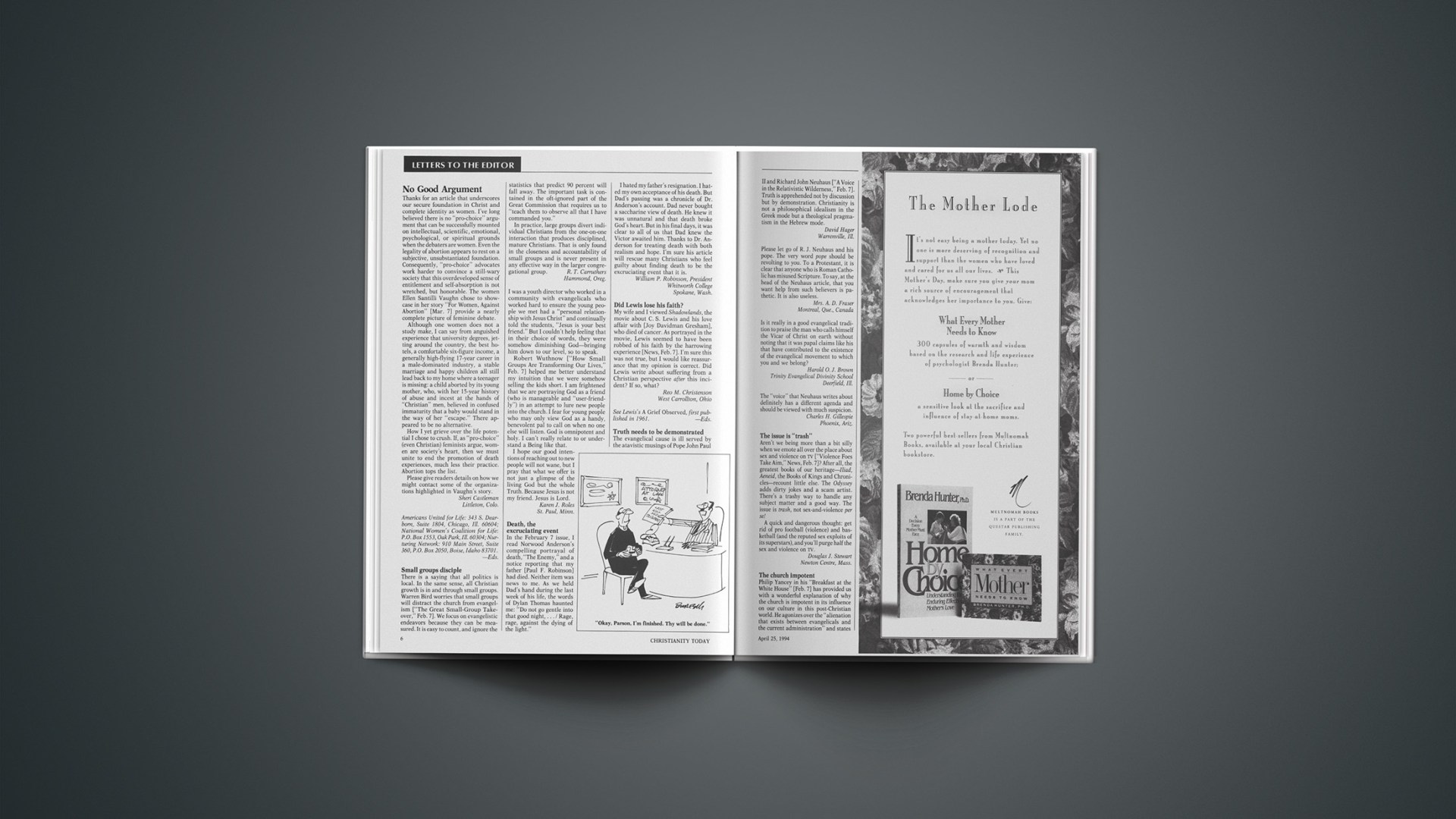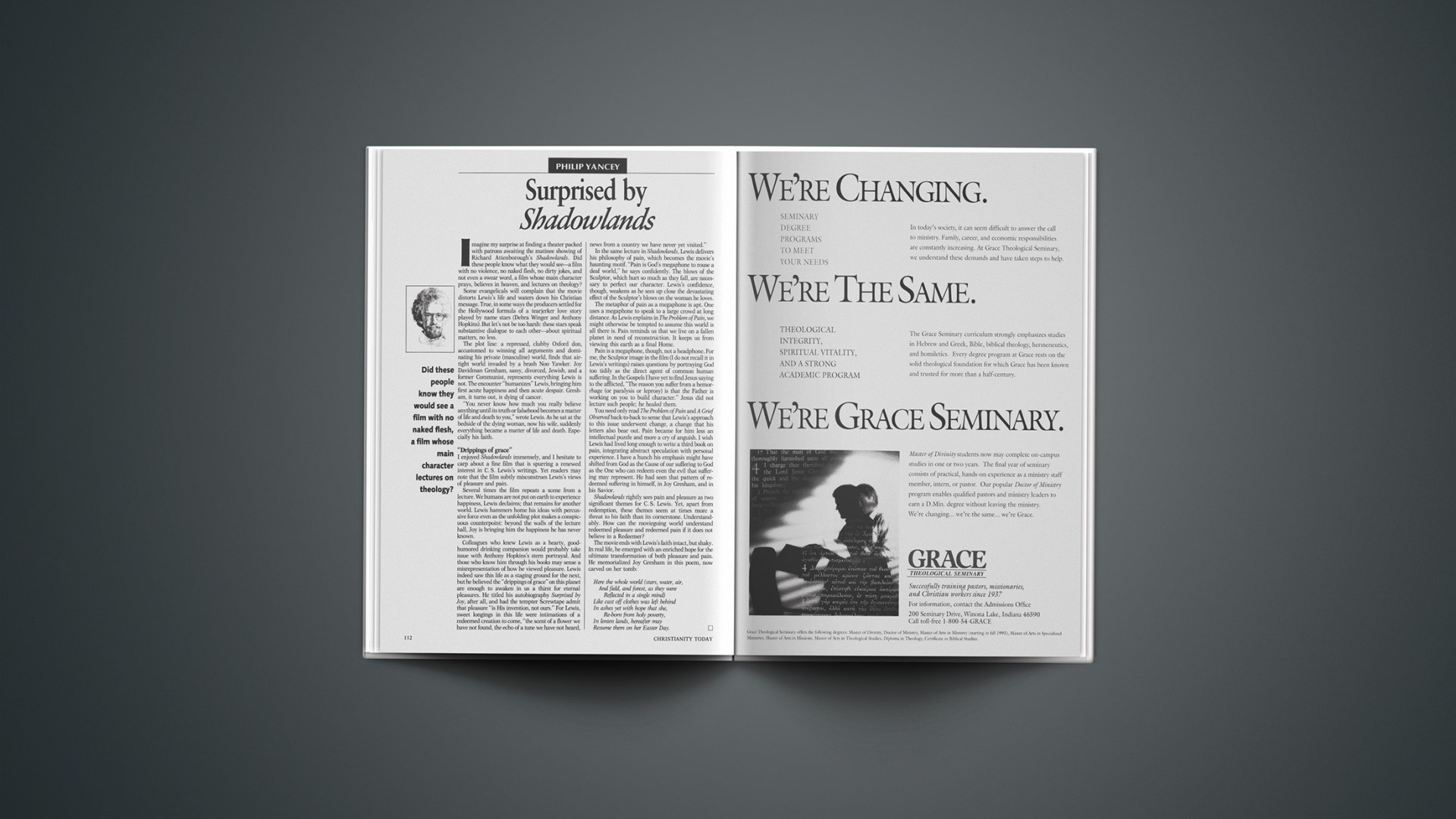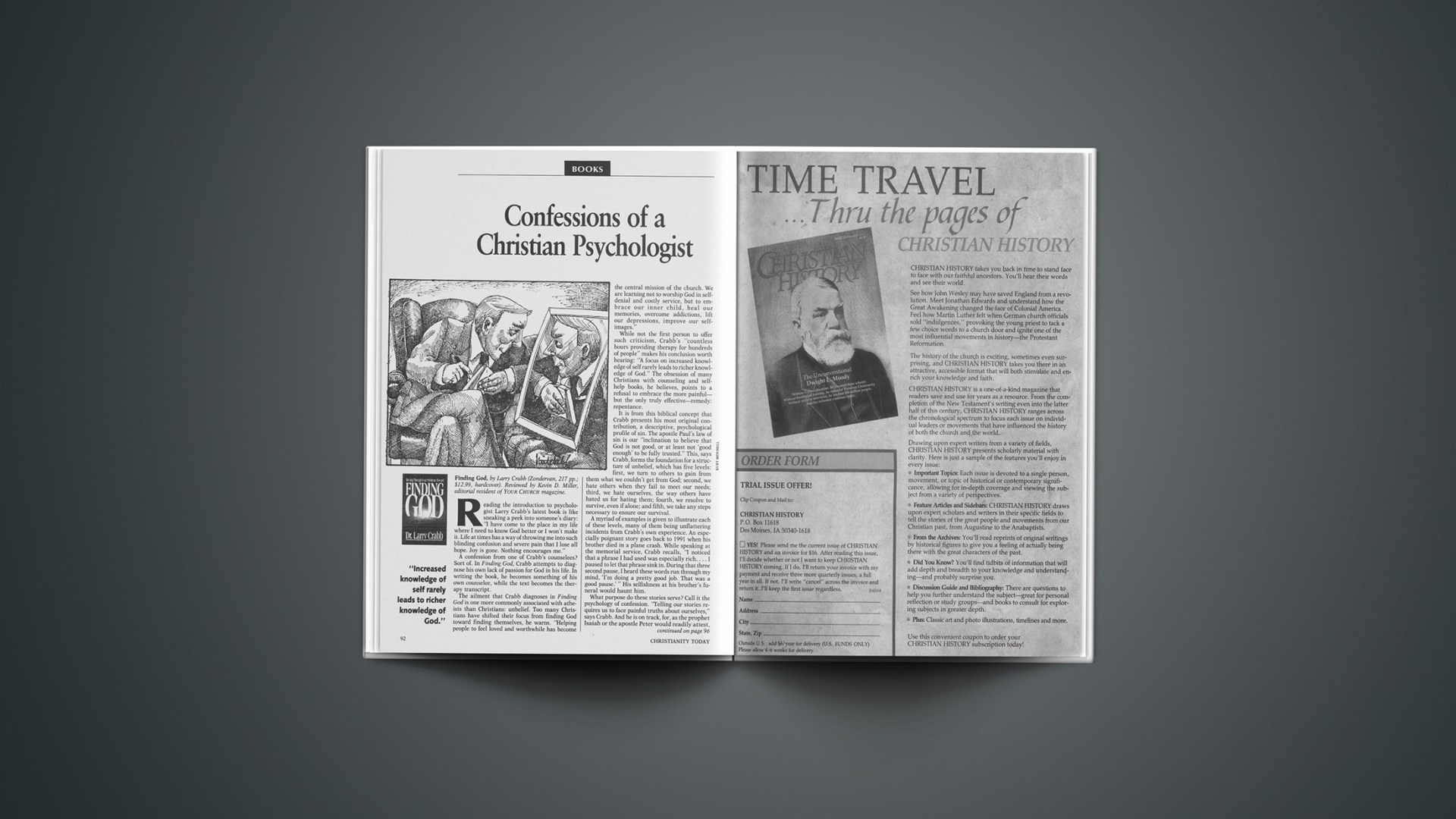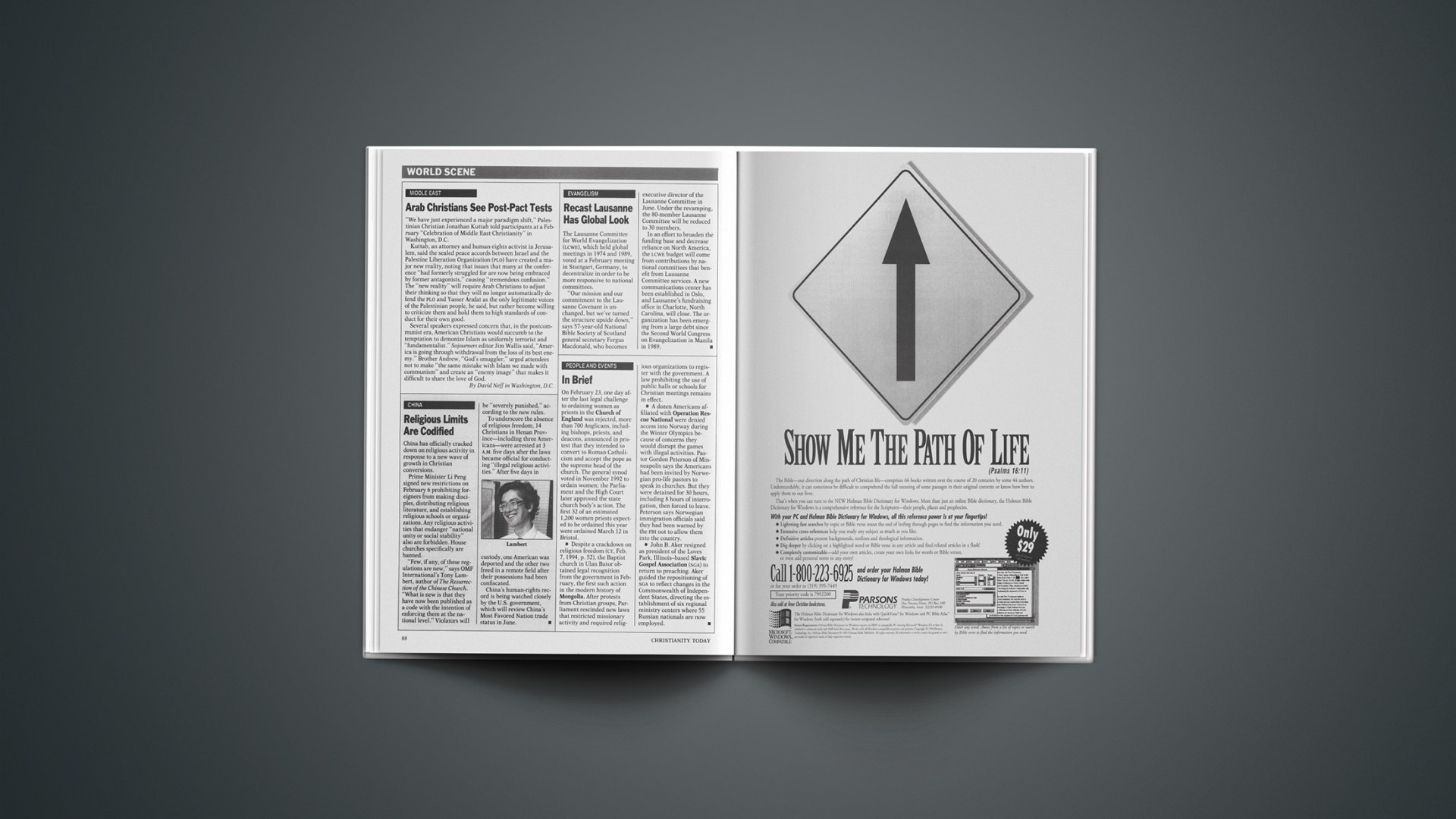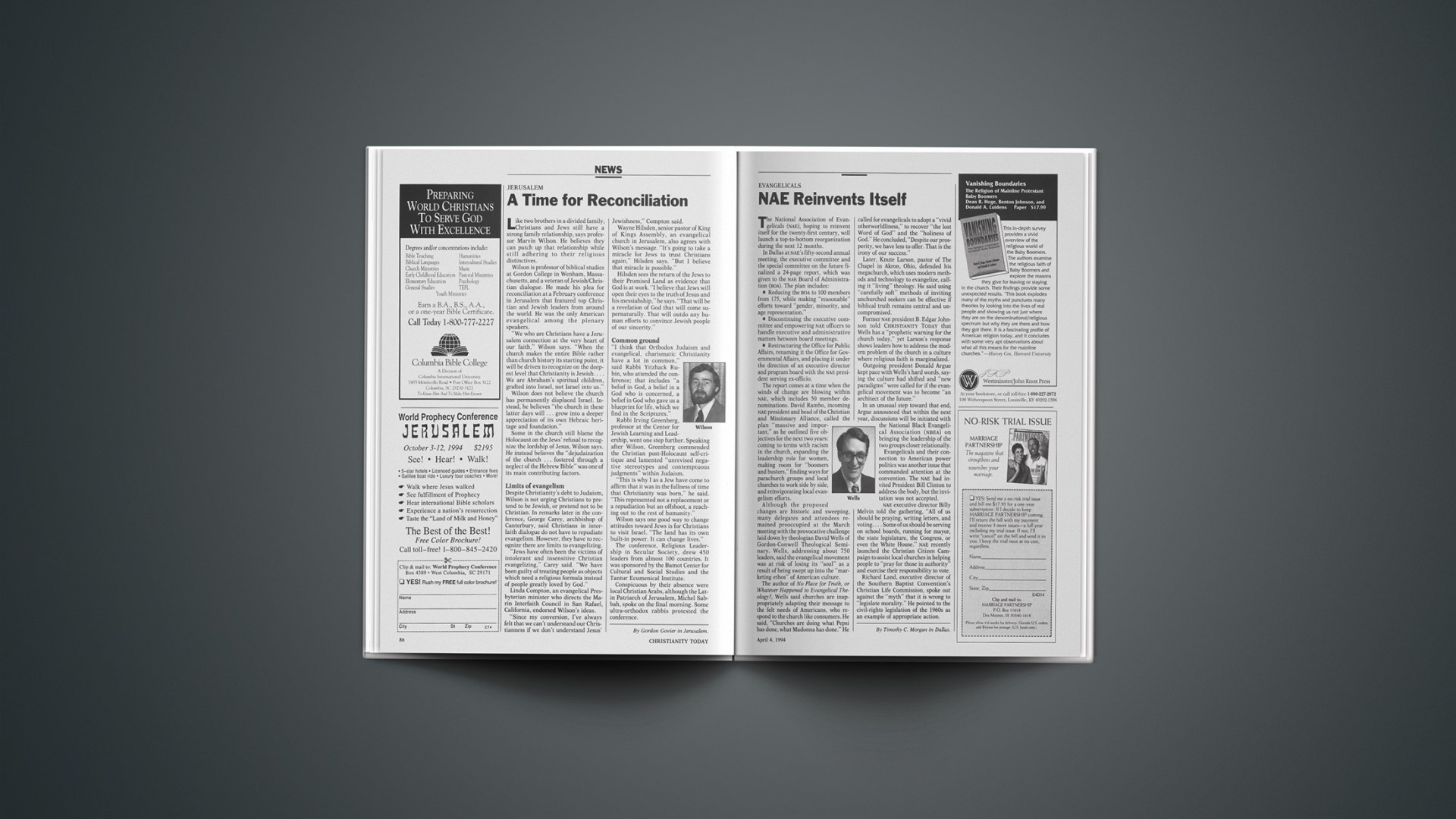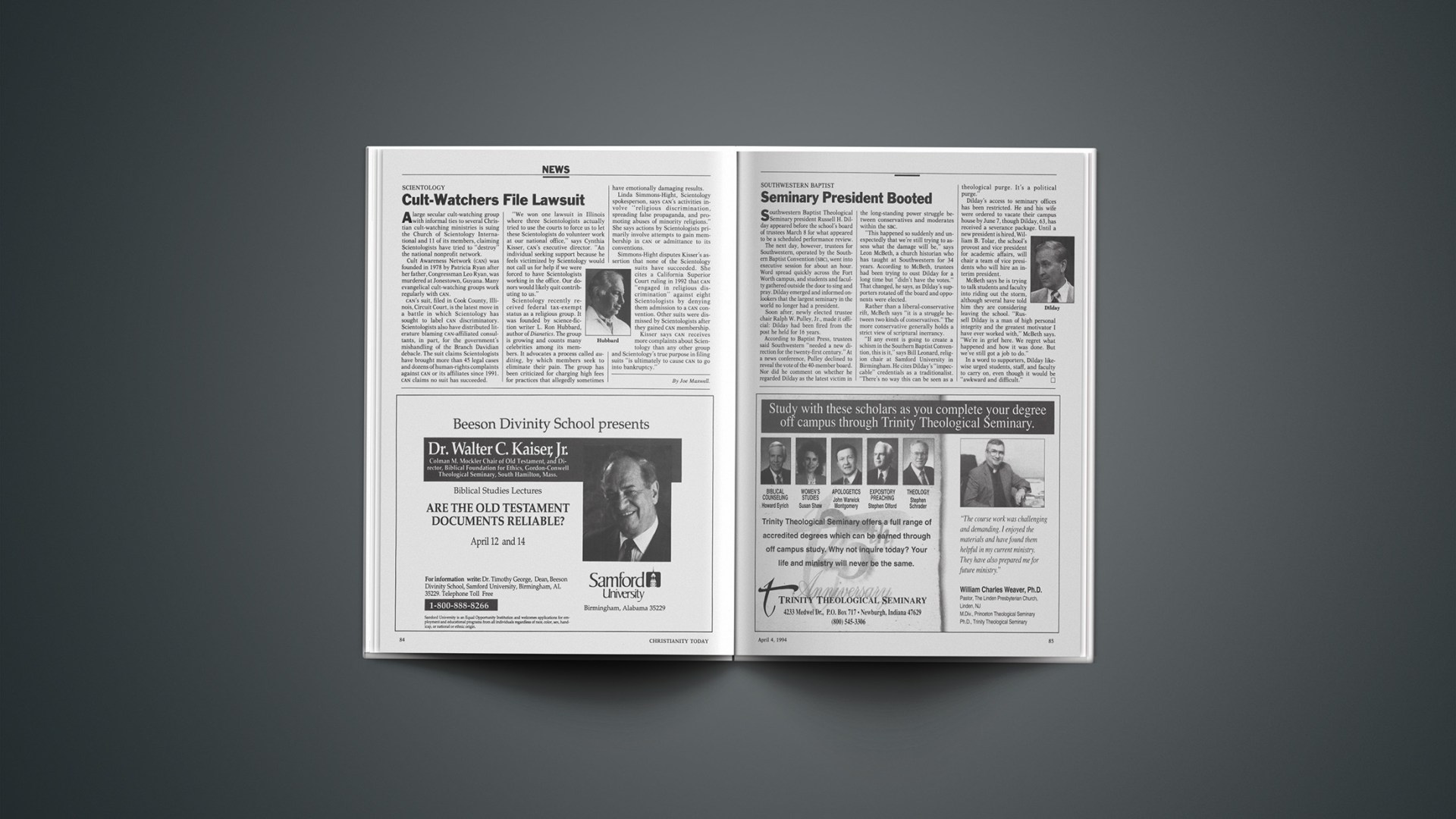The majority of evangelical Christians have been remarkably quiet about President Bill Clinton’s health-care reform plan, perhaps because they have yet to grasp how financially detrimental that plan would be for most Christians.
For example, the administration wants to implement what is known as “community rating,” a health-insurance pricing system wherein everyone pays basically the same price, regardless of an individual’s health status. By contrast, insurance historically has been priced based on risk. The higher the risk, the higher the price.
Health-insurance companies try to consider risk when pricing health insurance. A person living a healthy lifestyle is a much better risk—and therefore deserves lower health-insurance premiums—than a person who smokes, consumes alcohol or drugs, or engages in risky sexual practices.
Under traditional health-insurance pricing, the healthy-lifestyle person would pay less and the risky-lifestyle person would pay more.
The administration’s plan, however, would average out the prices, requiring the healthy-lifestyle person to pay more so that the risky-lifestyle person could pay less. Christians who treat their bodies as temples of the Holy Spirit would, in effect, be subsidizing the inevitable cost of that risky behavior. Such a pricing scheme insulates people from the true cost of their risky behavior.
There is, of course, widespread concern about how to provide coverage for the less than 1 percent of the population who have preexisting medical conditions—often through no fault of their own—that make them uninsurable, especially since their uninsurability can result in a person’s entire family being unable to get health insurance. One solution would be to create a national “high-risk” pool (27 states already have such pools), paid for by general tax revenues, that would cover those with preexisting conditions. People in high-risk pools usually pay a little more for their insurance, but it is expected they will get a whole lot more in return because of their conditions.
Besides this potential distortion of the insurance market, the administration’s plan would also force Christians to pay for benefits such as mental health care, counseling for drug and alcohol abuse, and abortion services. Even though Christians might reject abortion or turn to a minister rather than a mental-health professional for basic counseling, they would be paying premiums for these services so that others could use them.
There is a health-care proposal, however, that has some bipartisan support in Congress and that would reward Christians or anyone else who lives a healthy lifestyle and avoids practices that lead to higher insurance premiums. It is called Medical Savings Accounts (MSAS), sometimes referred to as Medical IRAS. Personal Medical Savings Accounts would permit people to put the same money they or their employer are now spending on health insurance into a tax-free account used for health care-related expenses. Out of the account people could purchase a low-deductible health-insurance policy or make payments to a health maintenance organization (HMO). But with MSAs, people would have a third option: buy a high-deductible health-insurance policy (with a deductible of, say, $2,500 to $3,000) to cover any major health-care expenses, and leave the premium savings in the account to pay for smaller health-care expenditures. With the special, tax-free treatment, the premium savings can just about equal the amount of the deductible.
As a result, individuals would have first dollar coverage, but (and this is the key to the plan) if they don’t spend the money, they, rather than an insurance company, get to keep it. The money can grow over a person’s working life and can be used for health care after retirement, rolled over into a pension fund, or become part of the estate at death.
MSAs give individuals a financial incentive to be prudent health-care shoppers. But they also promote healthy living by financially rewarding those who take care of themselves.
By Merrill Matthews, Jr., the health-policy director of the National Center for Policy Analysis, in Dallas, Texas.
Speaking Out does not necessarily reflect the views of CHRISTIANITY TODAY.

